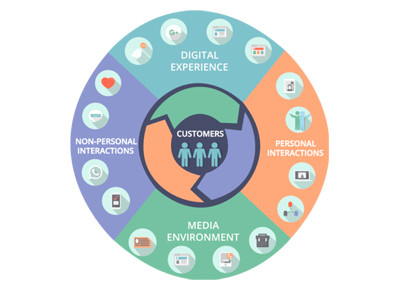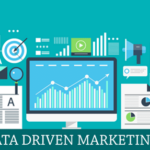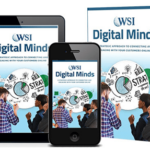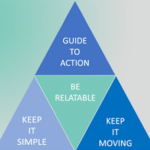In our current fast-paced technological world, a lot of noise can get in the way of meaningful customer connection. With so many channels online and offline to choose from, it can be difficult to understand the best ways to capture the interest of potential customers. A classic rule in marketing that is still true today is the “rule of seven”, meaning that a person needs to see and hear a marketing message seven separate times before making a purchase. This is good news in that all of these marketing channels and campaigns are a good thing when managed correctly. The challenge remains for many of our clients is how to hone in on the best customer-centric marketing strategies for small businesses?
Let’s take a look at some of the ways you can streamline and coordinate your marketing efforts so that your overall strategy is more meaningful and effective.
Turning Customer Data into Intelligence and Opportunities
For many businesses, managing customer data can be a constant struggle. Dealing with duplicate data, disjointed and often incomplete data makes the data unmanageable and very difficult to work with. When you are looking for specific information and you can’t find it, it’s not just frustrating but it slows down your entire process and creates problems for you and your team.
How often are customer records, preferences, and changes verified? Managing customer identity is a key part of a cohesive marketing strategy. Data from one channel must be merged with another so that a clear picture of the customer emerges. A customer may start looking into a company via an app, then go to the website to browse, then interact via chatbot or messenger on a question, and eventually order a product or service. Where does all of this history go? To manage the data efficiently, it’s crucial that you take a streamlined approach to ensure that all of the data is collected in one easy-to-manage process where each of your channels come together.
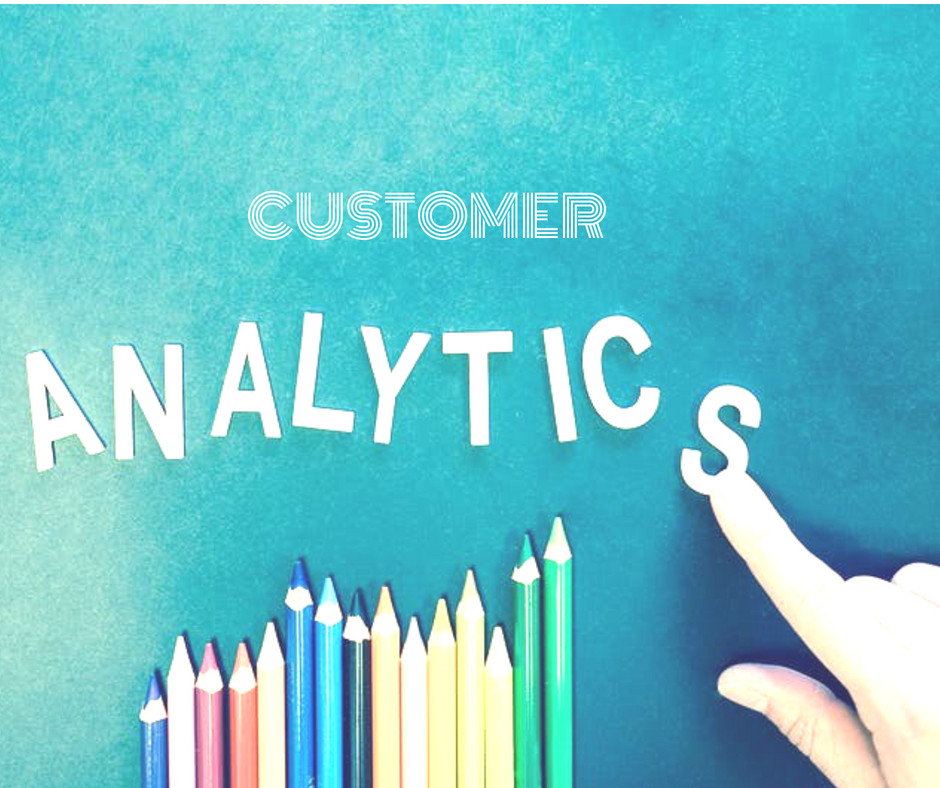
At the heart of changing customer data from a problem into an opportunity is having a current Customer Relationship Management (CRM) system that offers a comprehensive approach to collecting and sorting customer information. With the recent GDPR regulations, this data collection must be done in a respectful and professional manner. Do an audit of your current system to see if you need an upgrade. Technology moves quickly and perhaps your software could use a boost. Here are a few of the best CRM for small businesses in 2018.
A Good CRM coupled with a simple Marketing Automation tool, can show you connections of preferences and past purchases and produce a pattern to help the business maintain an accurate customer profile. Keeping track of when a customer changes their address or situation is also important information that will affect their purchases. And, analyzing how they respond to your communications and offers and personalizing every interaction with each customer will continuously improve your customer experience and your conversions.
Effective communication between sales, customer support as well as the traditional and digital media platforms to maintain and update records is vital for customer-centric marketing. The customer wants to feel as though they matter, and businesses must remember this concept in their interactions.
Looking at current customers can drive the search for potential customers as well. Analyze the patterns over all channels to find the common denominator of what persuades a person to buy your products and services. Modern marketing technology can help you do this efficiently.
It’s Not All Digital – The Human Connection is Vital
Studies show that while customers like browsing and researching products online, many continue to prefer making purchases in-store or office. While millennials are the most connected to technology, about 53% still prefer the brick and mortar store experience over buying online.
Potential customers may be enticed by online coupons or special deals, but the experience of looking, touching, and trying products as well as the interaction with store employees is still preferable to many consumers. Buying clothing is still very much an in-store purchase. Over 75% of branded clothing is bought in a store and not online. It is annoying to order something by mail and it doesn’t fit. Going to a store eliminates this frustration and allows the try before you buy to make sure it is the correct size.
Similarly, with B2B business, it’s important that you maintain a human aspect to your business. While automation and online business models are on the rise, what makes many businesses stand out is having that personal touch, that is often missed out on. The customer experience plays a vital role in competitive success. In fact, in a recent survey by KPMG Nunwood Consulting, it was reported that 75% of those B2B businesses that took part ranked the human connection, trust, and customer experience as major factors in choosing a supplier to work with.
Analyzing data is just a part of the whole customer identity. Purchases can be influenced not only by time of day, if the person is shopping alone or in a group, or merely spotting a last-minute deal that was an unplanned trip out. Put a human touch on data analysis for a more accurate picture of a person’s motivations and desires.
The Omnichannel Customer-centric Marketing Approach
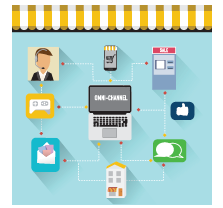
Each customer has a journey, a story, or from a marketing perspective, a profile. This person’s profile contains all the useful and immeasurable data that gives a full picture of their lifestyle and preferences. If a person has changed from single to married, or become a parent, recently retired, or shifted career paths, these are all important points to understand and know in order to help serve the customer better. Their experience in-store (in office) or online will develop brand loyalty or cause them to look for another business.
Using the data available and keeping it up to date is one important facet of the customer-centric marketing strategy. Combine the factual information with the behavioral data, including past behavior and purchase history, to form a complete picture of the customer. All of this data needs a streamlined platform.
Bridging the gap between the digital and real-life worlds of your customers has been termed “omnichannel,” referring to the seamless integration between digital and traditional marketing methods that enhance the customer’s experience. “Multichannel” marketing is using various platforms for a marketing message but does not offer a completely streamlined experience to the customer. Taking away any effort for the customer, omnichannel customer-centric marketing seeks to make it simple and easy to sell products or services.
To create an experience that is cohesive and personalized regardless of channel requires effective coordination and collaboration across organizational lines (marketing, sales, customer service, IT). The goal is for every customer interaction and campaign to be transparent via a central command center such as a marketing platform where all teams can see what’s going on in real-time. A lot of companies have trouble with this level of organizational and team alignment.
Combining customer intelligence, customer experience, and analytics will give your business a full customer identity for each individual. Devise efficient methods to retain and update all data in a fully integrated data management platform so that information is constantly up to date and accurate for a complete omnichannel outlook. Each customer interaction is important to creating a “wow factor” with your customers and growing a business, from the first online interaction to the purchase in a store or customer service phone call. This is complex, but the good news is that modern technology and data analytics are making it easier for companies of all sizes to create better experiences for their customers. If customer-centric marketing is an important goal for you, our consultants have helped brands of all size tackle this problem. Contact us, we can help.
We are proud to be recognized as a top Illinois Digital Marketing Agency on DesignRush.

